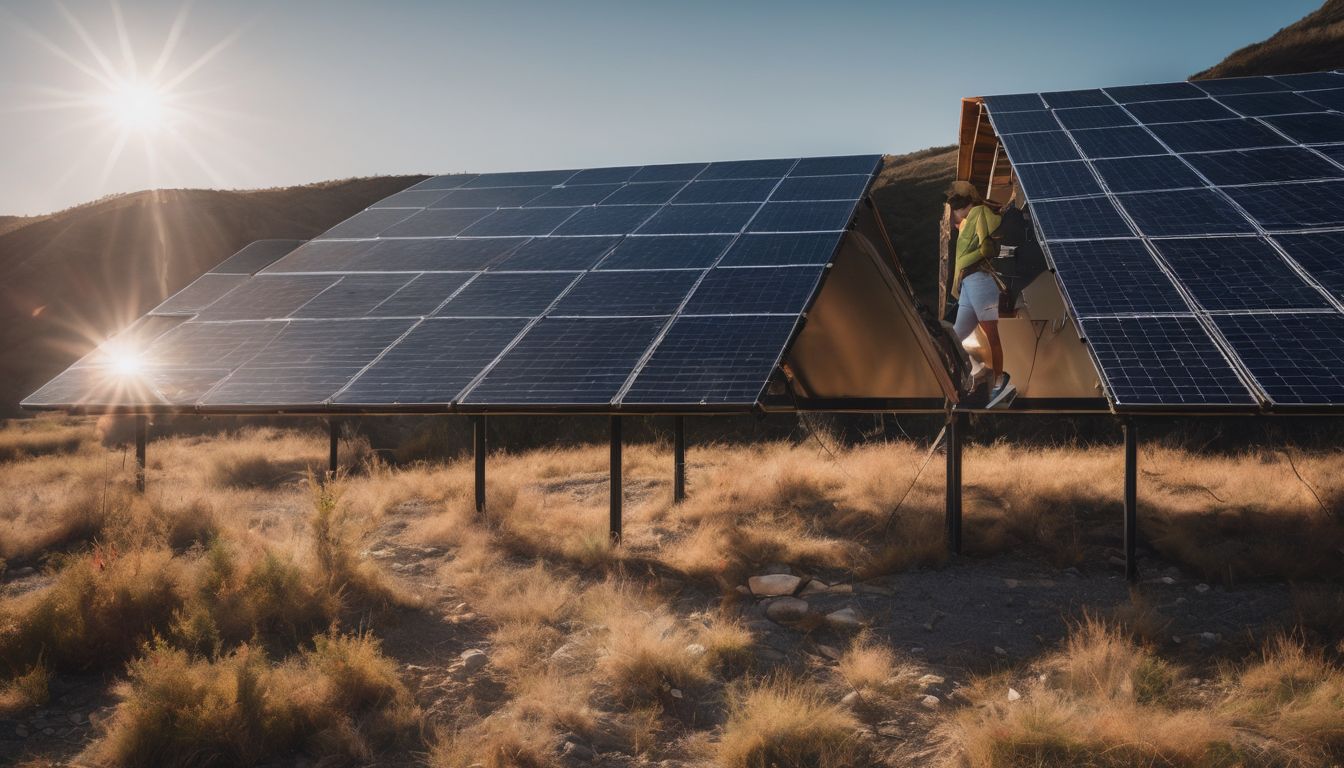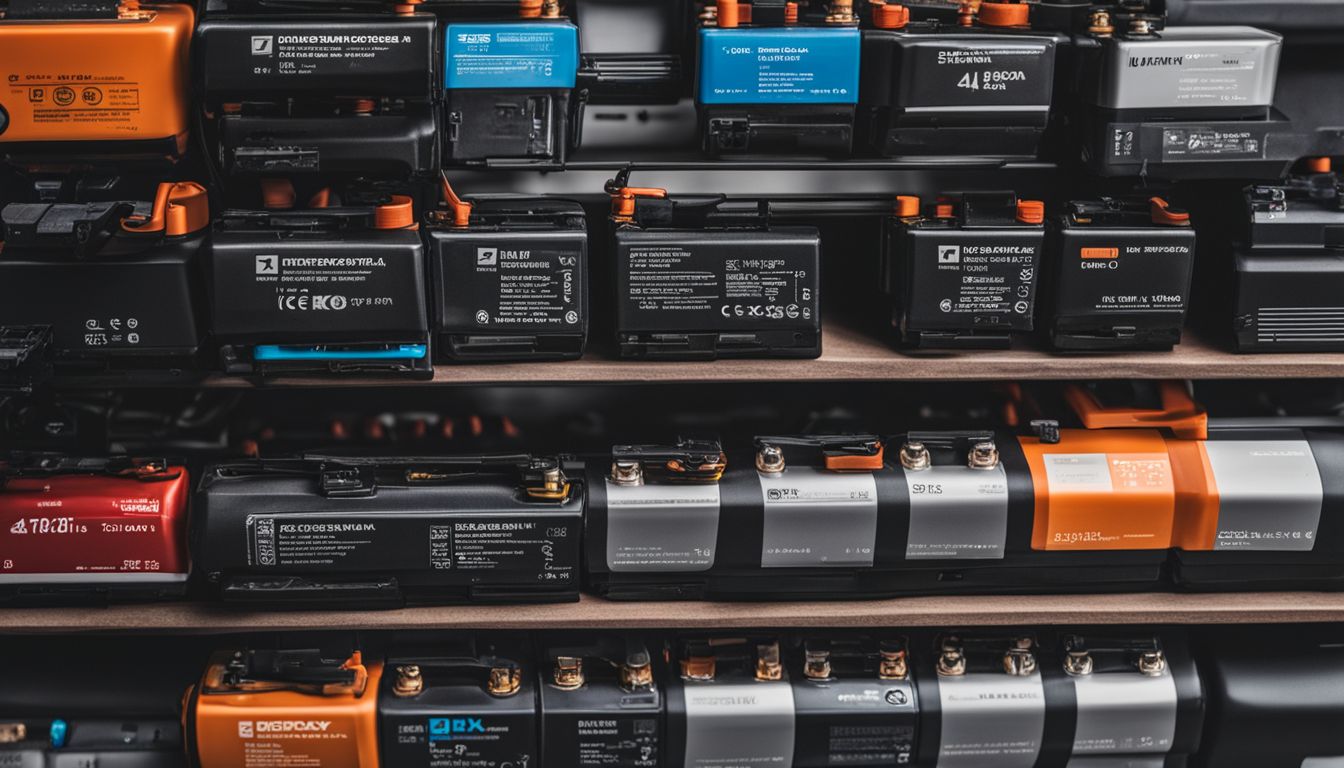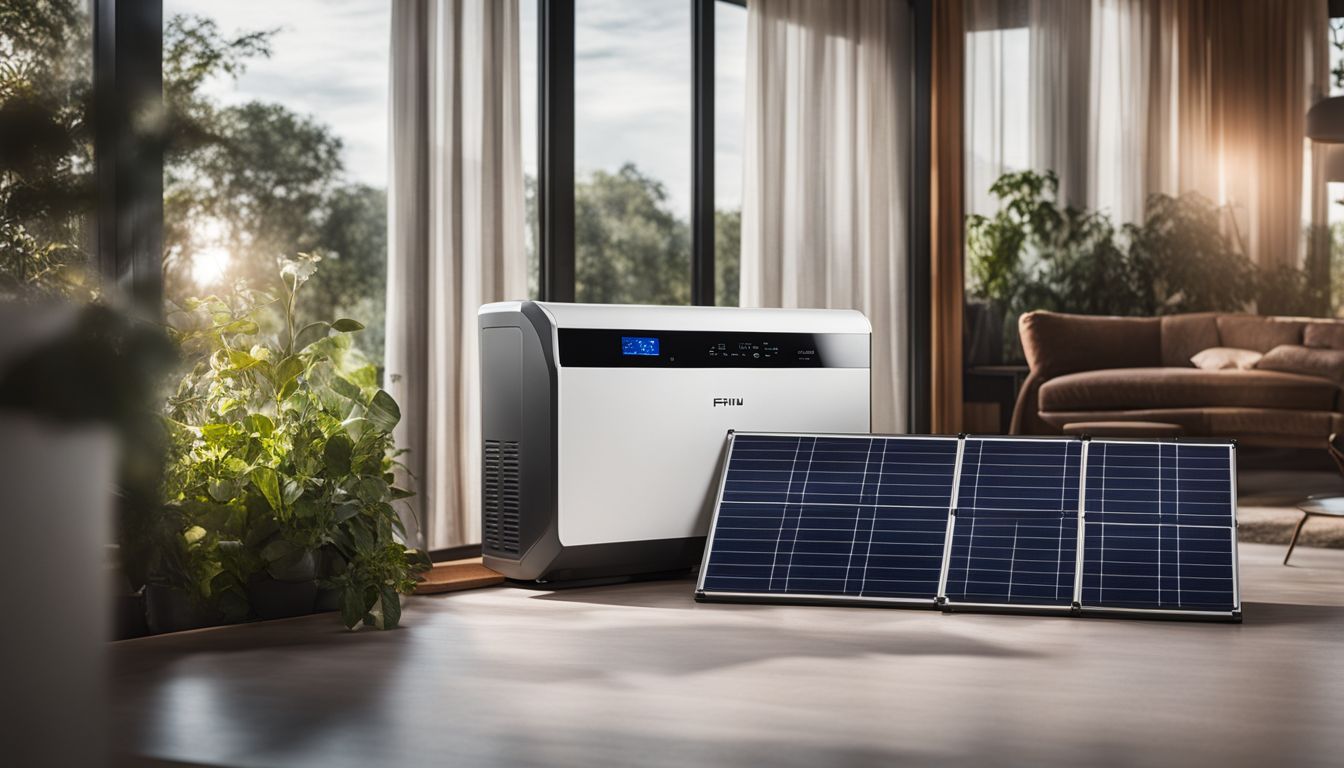How much is a battery for solar panels?

Determining the cost of a solar battery can be puzzling when planning to harness solar energy. An important fact to note is that home or office solar batteries may start at around $12,000.
This article promises to unravel the mystery behind battery prices and guide you through choosing the best option for your solar panels. Let's dive in and illuminate your choice!
Key Takeaways
- Solar batteries start at around £12,000, but prices can vary a lot.
- The two main types of solar batteries are lithium-ion and LiFePO4, each with different costs and benefits.
- How much you pay depends on the battery type, size, brand, where you live, and extra features like tax credits.
- Lithium-based batteries are more costly upfront but offer savings over time because they last longer.
- Having a solar battery means you use less electricity from the utility company, which saves money and is better for the environment.
Types of Solar Panel Batteries

When it comes to solar panel batteries, there are primarily two types that are commonly used: lithium-ion batteries and lifepo4 lithium batteries. Each type has its own unique advantages and drawbacks, making it important for consumers to carefully consider their specific needs and budget before making a decision.
https://www.youtube.com/watch?v=he7xTAWu4hI
Lithium-ion batteries
Lithium-ion batteries pack a powerful punch. They store lots of energy, keep it for a long time, and are good at taking in and giving out power quickly. These qualities make them top picks for storing solar power.With their high Depth of Discharge (DoD), they can use more of their stored energy than other types. Plus, they don't lose charge easily when not in use and need less looking after.
Homeowners often choose these batteries even though the price tag can be hefty—between $7,000 and $14,000 with setup included. Despite this cost, many find the investment smart because these batteries help cut down on electricity bills by holding onto solar energy gathered during sunny days to use later on or during blackouts.
This way, you get steady power from your own little green "power plant.".
Lifepo4 Lithium Battery
LiFePO4 lithium batteries stand out as the go-to choice for solar energy systems. They're safe, reliable, and perfect for powering up your home when the sun isn't shining. These batteries are not just good for homes; they also power up electric cars, golf carts, and even boats! What makes them so great? Well, they last a long time and don't catch fire easily.This is why people trust them to store energy from their solar panels.
Charging these batteries with solar panels is easy with the right kind of charge controller. You'll have peace of mind knowing you've got a top-notch battery that's eco-friendly too.
They help cut down on greenhouse gas emissions by making sure we don't burn fuel to get electricity. With LiFePO4 lithium batteries in your solar setup, you can enjoy clean power day or night!
Cost Range of Solar Batteries

The cost of solar batteries can vary widely depending on factors such as type, capacity, brand, and additional features. It's important to understand these factors in order to determine an accurate cost range for your specific energy storage needs.
https://www.youtube.com/watch?v=NKdU1ahTfWE
Factors Influencing the Price
Solar batteries play a big role in energy storage for solar panels. Their price can change based on many things. Here's what affects how much they cost:
- Battery Type: The kind of battery impacts the price. Lead-acid batteries often cost less, but they don't last as long and need more care than lithium-ion or lithium iron phosphate (LiFePO4) batteries.
- Capacity: How much energy a battery can hold is measured in kilowatt-hours (kWh). A bigger capacity usually means a higher price.
- Brand and Quality: Different brands offer various quality levels. Better quality often comes with a higher price tag.
- Inverter Compatibility: Batteries must work with the solar inverter, and certain types might need a more expensive inverter.
- Installation Costs: Putting in a battery involves labor, which adds to the overall cost.
- Materials and Manufacturing: The expense of raw materials and making the batteries affect the final price.
- Market Demand: When lots of people want solar batteries, their prices may go up due to high demand.
- Geography: Where you live can change the cost too because of shipping fees, taxes, and installation costs.
- Incentives like tax credits or rebates: Some governments give money back to help cover part of your costs for buying a solar battery system.
- Lifespan and Warranty: Batteries that last longer or come with longer warranties might be priced higher upfront, but they could save money over time.
- Additional Features: Things like built-in battery management systems mean extra costs but add to safety and efficiency.
- Energy Independence Goals: If you want to rely less on utility companies for power, you might choose more expensive options that provide better energy independence during outages or load-shedding events.
Comparing the Cost of Different Solar Battery Systems (e. g. , 5kW)
Assessing the price range of various 5kW solar battery systems reveals intriguing contrasts and insights. Here's a detailed comparison, neatly encapsulated in an HTML table:
| Battery Type | Cost Range | Pros | Cons |
|---|---|---|---|
| Lithium Ion | $6,000 - $7,000 | High energy density, long lifespan, low maintenance | Higher upfront costs and complex management systems |
| Lifepo4 Lithium | $5,500 - $6,500 | Stable, long-lasting, and environment-friendly | Initial investment is still significant, newer technology is less familiar to consumers |
| Lead-Acid | $4,000 - $5,500 | Lower initial cost, widely available | Shorter lifespan, requires regular maintenance, and has a lower energy density |
While lead-acid batteries present a more affordable entry point, longevity and efficiency place lithium-based batteries in a favored position despite the steeper price tag. Each system carries distinct advantages, yet financial and practical considerations must guide the ultimate selection. With every investment, contemplating both the short-term impact and the long-term gain becomes crucial.
https://www.youtube.com/watch?v=_qebTsI2554
Are solar batteries worth the cost?
Solar batteries come with a high price tag. But, for many people, they have big benefits. They store extra solar energy that you can use when the sun isn't shining. This means there is less need to buy power from the utility company, especially during peak times when electricity costs more.
These batteries also give peace of mind during power outages. You still have lights, and your fridge stays cold. Over time, having a battery can mean lower bills each month. Plus, they're good for the planet—less carbon gets put into the air because you're using clean solar power instead of fossil fuels.
People who get federal tax credits find it easier to pay for their batteries; this helps cut down on the initial cost. If blackout protection is really important to you or if cutting your carbon footprint matters a lot, then paying for a solar battery might make sense for you.
Conclusion
Alright, let's wrap this up. Batteries for solar panels can cost a pretty penny. You might spend between $200 and $22,000. Prices change because of different types, sizes, and how long they last.
If you're thinking about getting one, remember to weigh the costs against what you'll save on electricity bills. In the end, it’s all about finding that sweet spot for your own energy needs!
Discover the detailed cost breakdown for a 5kW solar battery system in our comprehensive guide to 5kW solar system costs.
FAQs
1. What is the cost of a battery for solar panels in South Africa?
In South Africa, the price of a battery for solar panels can vary based on the type and size. Generally, you might pay more for long-lasting lithium-ion batteries than for lead-acid ones.
2. Why do I need a battery with my solar energy system?
A battery stores power from your solar panels when there's lots of sun. Then you can use this energy later, like at night or when it's cloudy and your panels aren't making electricity.
3. How often do these batteries need recharging?
Your solar panel system will recharge your batteries every day, as long as the sun shines! The amount they charge depends on how much sunlight hits your panels.
4. Can using a battery help me save money with time-of-use rates?
Yes, indeed! If you use stored solar energy during peak hours when electricity is expensive, you could see savings on your bill thanks to 'time-of-use' perks.
5. Are all types of batteries the same for storing solar power?
Nope—they're different kinds! Lead-acid batteries are common and budget-friendly, while AGM (Absorbent Glass Mat) and lithium-ion types are also popular because they last longer and perform better.
6. Will having a backup power source protect me against intermittent power issues?
Sure thing! A well-charged battery acts as a backup if there's an outage or other problems with regular power sources; it makes sure you don't end up in the dark unexpectedly.











